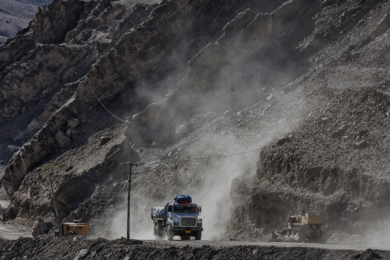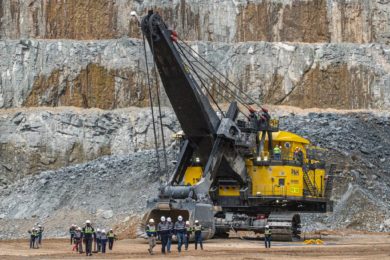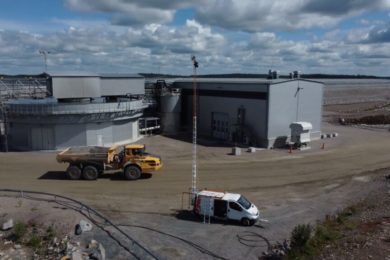At one time, African mining companies were leading performers in the global mining industry, but they have been falling behind their global peers for the past decade due to declining productivity and return on invested capital.
While market challenges impact the sector globally, Africa has significantly underperformed. However new research shows there are clear strategies that African miners can employ to considerably impact their success. A jointly developed report from McKinsey’s Basic Materials Practice and Mining Indaba, Creating Global Mining Winners in Africa details big moves in four areas that could help African mining companies regain some prestige. The suggested four strategies are to pursue programmatic M&A, dynamically reallocate resources, deliver capital investments and seek productivity breakthroughs. The research has been released at the Investing in African Mining Indaba, underway in Cape Town this week.
Commenting on the research, McKinsey director and co-author of the report, Michael Kloss said, “Given the global downturn in many commodity prices, including coking coal and iron ore, African mining companies may question whether now is a good time to spend. The answer is ‘yes’. A downturn is a good time to buy, and at least half of all African companies have the headroom to fund this growth based on their debt to equity ratio to do it. Our analysis shows there are also plenty of targets: 77% of mining companies account for just 30% of the industry’s market capitalisation in Africa.”
To gauge the performance of 65 publicly listed African mining companies, McKinsey compared them to the economic profit performance to the world’s top 3,999 companies, all of which compete for the same capital. By ranking companies this way, McKinsey produces “the power curve” of economic profit. In the first half of the 2000s, African mining companies were ahead of their global peers in terms of economic profit. Since 2005, African companies began falling behind. Besides favourable geography, invested capital in Africa has actually grown over time. But the return on invested capital (ROIC) has been below average and declining. Additional research from McKinsey’s MineLens Productivity Index (MPI) indicates African mining productivity was dropping 5% year-on-year since 2004 versus 3% for its global peers.
According to Lorenz Jüngling, partner and leader of McKinsey’s Global Energy and Materials Practice in Africa, “All African mining companies can and should take steps to improve productivity and reallocate capital, while about half have the capacity to merge with or acquire companies (M&A). Taken together, productivity improvements and strategic moves that harness market trends (M&A, capital and expenditure reallocation) would improve companies’ odds of moving from the mid quintile to the top quintile on the power curve by up to 31%.”
Jonathan Moore, Managing Director of Investing in African Mining Indaba commented: “The current market has forced the African mining industry to take a hard look at how it does business and the aspects that are most critical to its future success. Looking ahead – governments and companies are focused on developing strategies to invest in African mining beyond the current mining cycle. In a capital restrained market, it is notable that we have one of the most influential representations from the investment community that we have seen to date.
“How can African mining companies improve their odds of moving up the power curve of economic profit?
“Our analysis aims to deliver a fact-based answer to this question. ‘Big data’ analytics were used to understand how companies can boost their odds of scaling the power curve, in other words, what they can do to beat the average. We found that by taking specific actions in productivity, strategic M&A, and allocation of capital, African mining companies can boost their odds of moving up the power curve by a multiple of three or four. To secure a more favourable business climate, companies should complement these moves with measures in four action areas:
o Facilitating access to infrastructure
o Collaborating on regulatory frameworks
o Investing in local labour and community development
o Cultivating a local supplier base.
“We believe that the global mining industry should work together and individually to address the challenges discussed above. By taking action now, they will create the fertile ground for individual successes that put Africa back on the map as one of the most attractive regions for mining globally.”
The full report is available for download at www.mckinsey.com










